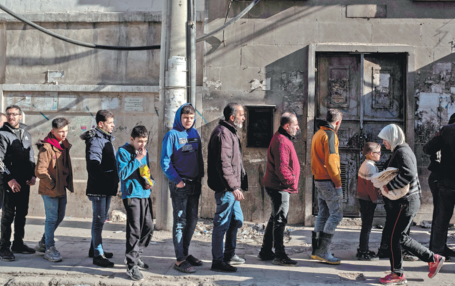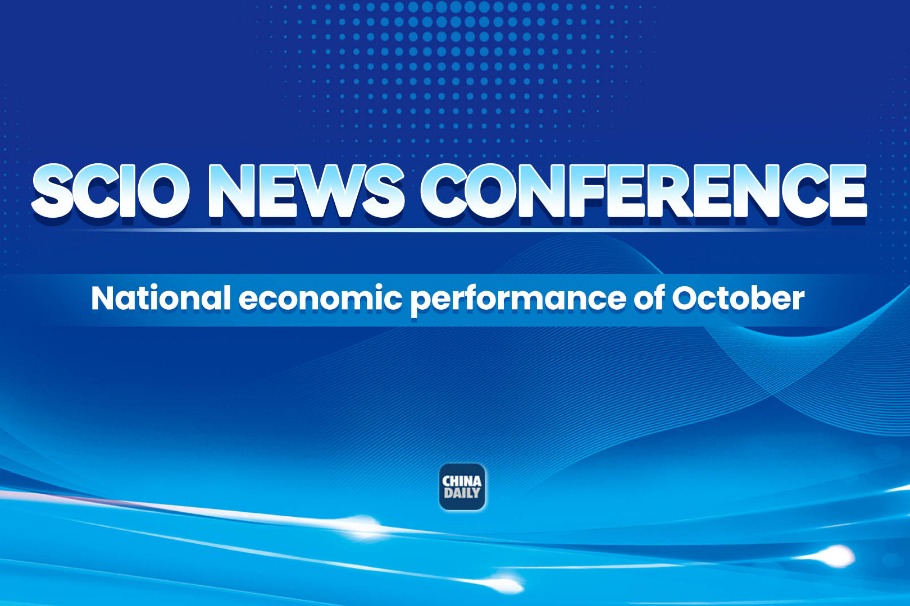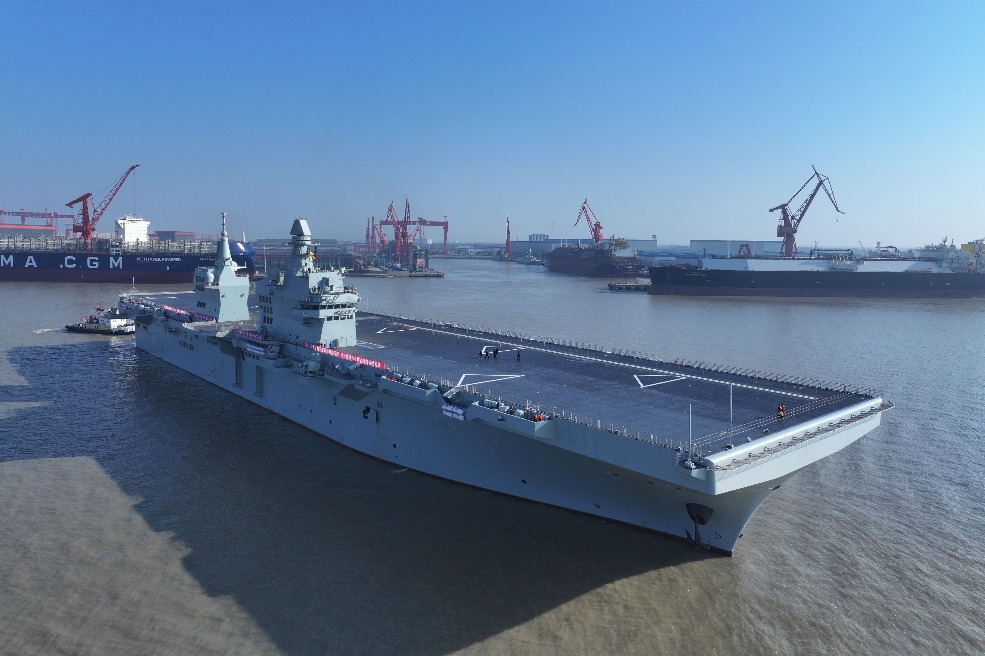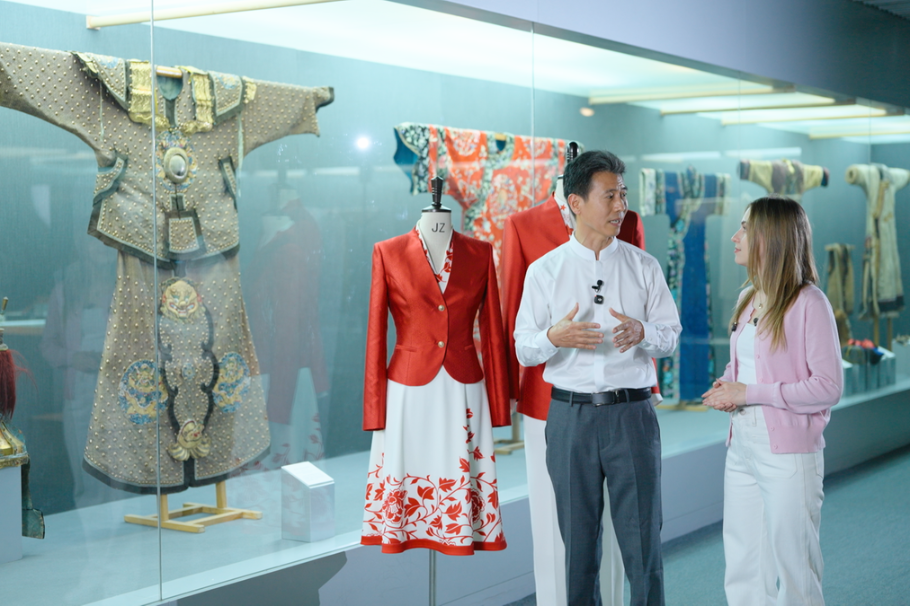Syria facing uncertain path toward stability
Crisis reshapes Middle East dynamics as stakeholders' power struggles intensify

Early signs of some stability and progress in Syria have sparked cautious optimism among observers. However, experts continue to be wary of the country's uncertain future, and the potential regional and global ramifications of its trajectory.
In a notable development, a coalition of rebel groups appointed Mohammed al-Bashir as the head of an interim government tasked with governing Syria until March 1. Bashir has pledged to establish representative governance and promote religious tolerance.
"The country is moving toward development and reconstruction," said Abu Mohammed al-Jolani, leader of the main insurgent force, Hayat Tahrir al-Sham, in an interview with Sky News. "It's going toward stability."
Countries are slowly paving the way to restoring diplomatic ties with Syria. Russia and the United States have been in contact with HTS.Qatar would reopen its embassy in Damascus on Tuesday, while France will send a diplomatic mission to Syria to assess the political and security situation on the ground.
While these developments suggest progress, the road ahead for Syria remains fraught with challenges and complexities.
Analysts cautioned that Syria's precarious situation leaves little hope for a swift resolution to its issues and a return to normalcy. They highlighted the risks of sectarian violence, internal power struggles within the rebel coalition, and the resurgence of extremist groups such as ISIS.
The country's diverse population — Sunni Muslims, Shia Alawites, Christians, Kurds, and Palestinian factions — remains divided along ethnic and sectarian lines. Historically, these groups have often conflicted.
Niu Xinchun, a professor at Ningxia University's China-Arab Research Institute, warned of the devastating consequences if the power transition is not peaceful. "If Syria fails to establish a stable and efficient central government, it could plunge back into a larger-scale civil war, resulting in immense suffering for its people," Niu said.
While a smooth regime transition would be the ideal outcome, "the likelihood of such a scenario is very low," Niu said. "Syria is highly likely to remain unstable and turbulent."
Syria's economy is in shambles, marked by widespread unemployment and a lack of basic services. The transitional government faces enormous challenges in addressing these issues, particularly with international sanctions still in place.
Zhao Beiping, deputy director of the Center for Middle East Studies at Shandong Normal University, emphasized the current uncertainty in Syria, saying that the major powers supporting various factions will play a pivotal role in shaping the country's future.
" (Former Syrian president) Bashar al-Assad's collapse will inevitably alter the geopolitical map of the region," Zhao said. "Regional stakeholders are actively trying to influence the developments in Syria to align with their political interests."
Israel, in particular, appears to be capitalizing on the situation. Israeli Prime Minister Benjamin Netanyahu recently ordered his troops to swiftly seize the demilitarized buffer zone that has separated Israel from Syria since the 1974 disengagement agreement. Netanyahu's office stated that troops would remain slightly beyond the buffer zone for "strategic reasons".
The international community has strongly condemned Israel's extensive military operations in Syria, asserting that these actions constitute serious violations of international law.
Zhao Jun, an associate researcher at Shanghai International Studies University's Middle East Studies Institute, said the situation in Syria will trigger a new round of competition among international and regional stakeholders, each vying for influence and control over the country's future.
Turkiye, Iran, Russia and the US have vested interests in Syria, but their competing agendas create significant barriers to coordinated action, Zhao Jun said.
In his first address following the ousting of Assad, Iran's Supreme Leader Ayatollah Ali Khamenei harshly criticized the US and Israel, accusing them of orchestrating the downfall of one of Teheran's key allies.
Regional vulnerability
Assad's collapse represents a major blow to Iran's "Shia Crescent", a geopolitical alliance that once spanned from western Afghanistan to the Mediterranean. Syria, at the heart of this corridor, was crucial for Teheran's ability to arm Hezbollah and project influence in Lebanon and across the Levant region. With Syria's shift, Teheran now faces heightened regional vulnerability and a diminished strategic foothold, analysts noted.
Russia's military intervention in 2015 was pivotal in saving the Assad government from collapse, securing key air and naval bases in Tartus and Khmeimim, and solidifying Moscow's presence in the Eastern Mediterranean. From Syria, Russia has extended its influence into Libya, the Sahel and beyond, strengthening its broader Middle East and Africa strategy.
On Thursday, Russian Deputy Foreign Minister Mikhail Bogdanov expressed Russia's intent to maintain its military bases in Syria, citing the continued need to "fight international terrorism", according to Interfax.
Meanwhile, US Secretary of State Antony Blinken visited Turkiye, Iraq and Jordan between Wednesday and Saturday to discuss Syria, signaling continuing diplomatic efforts to navigate the region's shifting dynamics.
US involvement in Syria began in 2011, following the Arab Spring's spread to the country. Diplomatic ties between the US and Syria were severed in 2012.
The US maintains about 900 troops in northeast Syria as part of its efforts to combat ISIS. The future of the US presence in the region remains uncertain, especially with President-elect Donald Trump's stance that the US should "not get involved" in Syria.
Turkiye considers itself the most important player in shaping the new Syria's political landscape as it has troops there and stands behind some rebel forces, Niu of Ningxia University said.

Today's Top News
- Japan will only suffer a crushing defeat should it dare to take a risk: Defense spokesperson
- Tokyo must stop playing with fire: Editorial flash
- China's Shenzhou XX crew en route back to Earth
- China's economy remains generally stable in Oct
- Xi calls for advancing community with shared future when meeting Thailand's king
- Xi holds welcome ceremony for visiting Thailand's king






























